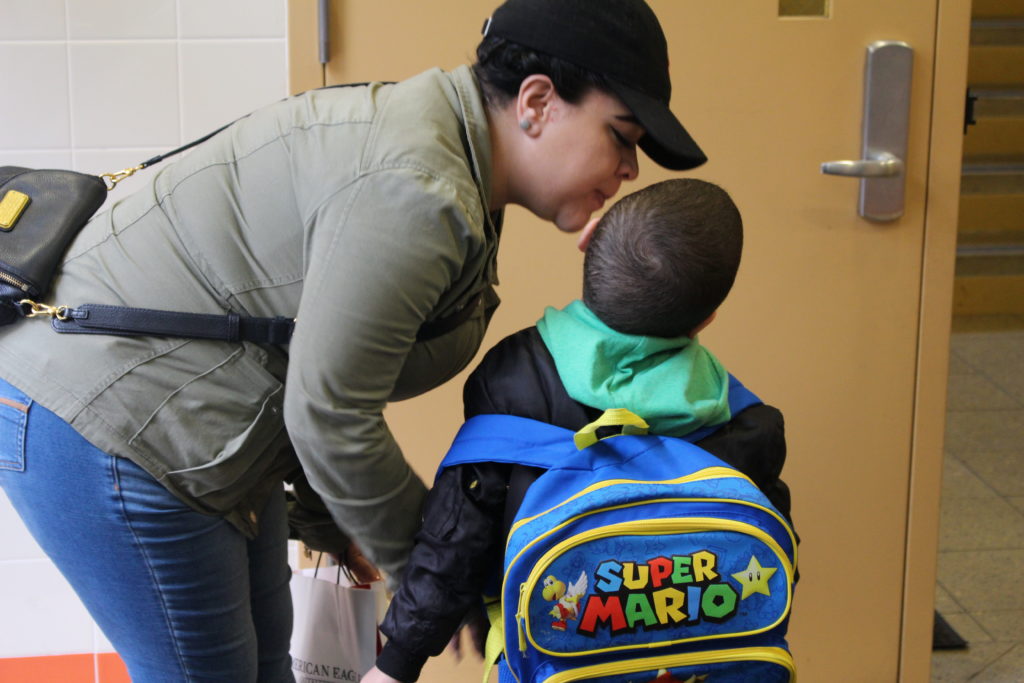Rethinking The Back to School Checklist: Getting Your Child Ready Socially, Emotionally And Cognitively
By Renee Prince, LCSW, Director, Mental Health Integration
☑ Backpack
☑ Lunchbox
☑ Notebooks
☑ Pencils
☑ Erasers
Are these items already on your back-to-school checklist? Now think about what it will take for your child to be ready for the new school year socially, emotionally and cognitively. These things are even more important for student success than school supplies. That’s why Turnaround for Children is offering this social-emotional checklist: eight items grounded in the science of learning and development for any parent or trusted adult in a child’s life.
![]()
Social, Emotional and Cognitive Back-to-School Checklist
Parent to Child
- Talk to your child about their fears and or excitement about the school year ahead. Transparent communication with children sends a message that their feelings are important, and provides parents with more insight into their child’s inner thoughts and emotions. This proactive approach can ease a child’s anxiety about school and reduce the kind of stress that impedes learning.
- Communicate with your child about the schedule for the first week of school. Transitioning from a summer schedule to a school schedule a week or two prior to the first day of class will support a smooth start. Child development experts assert that children thrive in environments that provide structure and predictability. Where children feel safe and secure, the stage is set for learning.
- Ask your child about their friends. Inquire about their names, interests and what they like about them. While making friends is a part of the developmental process, some children have trouble engaging other children, while others have difficulty choosing friends that are aligned to the values they have been taught at home. As children become adolescents, their peers have a huge influence on their choices and behaviors and, ultimately, on academic performance. Your insight and support will help your child develop the social skills they need to make positive, healthy choices in selecting friends.
- Share your belief in your child’s capacity to be successful in school. Mindset plays a huge role in the academic success of students. Positive affirmations help build children’s confidence and self-esteem, and lay the groundwork for the moments when children are faced with academic and life challenges. For example, reminding your child to “never give up,” or saying, “I believe in you,” can give your child the perspective and confidence they need to overcome challenges.
Parent to School
- Reach out to your child’s teacher(s) about your child’s personality traits, strengths and how you think they may learn best. This can be in the form of an in-person conversation, written note, email or over the phone. For all children, there is power in the relationships they have with both teachers and peers. It is important for teachers to treat and support each child as an individual. All children are born with some natural talents and skills that should be seen, acknowledged and leveraged to support their learning. Positive developmental relationships are a key ingredient to academic success.
- Share any cultural beliefs or practices that may impact your child’s school life; there could be opportunities to embrace these practices in school. Children learn best when the content they are learning is relevant to their own personal context. This could include sharing what country your family is from, religious beliefs, educational values, etc. When a teacher embraces cultural experiences it can help build an inclusive environment and increase children’s sense of belonging. Perhaps your child speaks a language other than English at home or celebrates a holiday that is not on the school calendar? Let the teacher know.
- Tell your child’s teacher, school social worker or guidance counselor about any academic or behavioral concerns you have about your student and what if any supports have been helpful or harmful. Also share if your child is taking medication or receiving therapy after experiencing trauma or other forms of adversity. Extensive research has been done on the impact of adversity on the brain development of children. Far too often, school staff are unable to determine how best to support a struggling student without this knowledge. Deepening the school’s understanding of your child’s history can contribute to better academic outcomes.
- Find out how to best reach your child’s teacher and tell the teacher how to best reach you in case of an emergency. In addition, obtain the contact information for your school’s student support personnel, such as the school nurse, parent coordinator, guidance counselor, and school social worker. When you build a relationship with your child’s teacher based on communication and trust it sends a unified message: you share a common goal to help your child reach their full potential as a learner and human being.
This checklist is designed to encourage and empower parents to take a proactive approach to supporting their child’s experience at school. What’s on your back-to-school checklist? Tweet @Turnaround #The180.


Share This Story